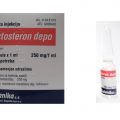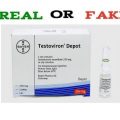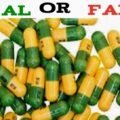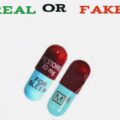
What is Galenika Testosteron Depo?
Testosteron Depo Galenika is a Serbian brand of Testosterone injection containing Testosterone Enanthate 250 mg/amp. Testosterone is a naturally occurring sex hormone produced in a man’s testicles. Small amounts of testosterone are also produced in a woman’s ovaries and adrenal system.
Normal testosterone levels are between 300 and 1,000 ng/dL. If a blood test shows that your levels are far below the norm, your doctor may suggest testosterone injections. This is a form of treatment called testosterone replacement therapy.
Testosterone injection is used in men and boys to treat conditions caused by a lack of this hormone, such as delayed puberty, impotence, or other hormonal imbalances. Testosterone injection is not for use in treating low testosterone without certain medical conditions or due to getting older.
Testosterone enanthate is used in women to treat breast cancer that has spread to other parts of the body (metastatic) and cannot be treated with surgery. Testosterone will not enhance athletic performance and should not be used for that purpose.
Unfortunately, Galenika Testosteron Depo is one of the most counterfeited products in Europe. Fake Galenika Testosteron Depo producers imitate the genuine brand and sometimes make false claims about their ingredients.
A counterfeit Galenika Testosteron Depo could have:
- No active ingredient
- Substandard ingredients
- Undeclared ingredients
- Illegal or dangerous ingredients
- Incorrect dosage (too much, too little, or variation in dose across tablets)
- Contaminants from unhygienic manufacture.
You are more likely to encounter a counterfeit Galenika Testosteron Depo if you try to buy medicine online. Some websites look like they are genuine, but are actually located and distributing goods from illegal locations and hideouts across the globe.
How to Spot Fake Galenika Testosteron Depo
Between 2007 and 2015, several versions of Testosteron Depot allegedly produced by Galenika have flooded the pharmaceutical chain of supply mostly from testosterone black markets and the dark web, some with terrible lettering that can easily be cleaned off by hand.
Recently, Galenika has introduced a few authentication and safety measures aided by technology to help users and patients identify a genuine product. A real Galenika Testosteron Depo should have a barcode on the sticker with a hologram on the box. In addition, the date on vials should be the same as that inscribed on the box.
Beyond these measures, Interpol warns that counterfeit medicines are often packaged to a high standard with fake pills that look identical to genuine ones. Sometimes a laboratory test is the only way to identify the difference.
It is essential to take care when buying your medicines, especially online.
Look out for the “six Ps”:
- Place – Never buy medicines from unknown websites or in a marketplace. Buy medicines only from licensed suppliers who display an authenticity certificate. If you are unsure about a supplier’s credentials, check the list of registered dispensaries at your local health regulatory body. This applies to suppliers both online and offline.
- Prescriptions – Only buy medicine that has been prescribed by your doctor or healthcare professional. When buying online, make sure the website requires you to present a prescription. Do not buy from websites that offer prescriptions on the basis of questionnaires or do not have a contactable pharmacist.
- Promises – Be wary of pharmacies that offer “too good to be true” promises. False promises to watch out for are “cures all types” of a major illness, “money-back guarantee”, “no risk” or “limited supply – buy in advance”.
- Price – Check the price against products you usually buy or with reputable providers. If it is substantially cheaper, it is likely to be a fake.
- Privacy – Do not supply any financial information to a website, unless you are sure it has a secure online payment system. The trade in fake medical products has also been linked to credit card fraud and identity theft. Do not reveal any personal information beyond appropriate medical details.
- Product– Compare the medicines against your usual prescription. A medicine is fake if:
- It contains too much, too little, or any different ingredients;
- Claims to have different properties or side effects;
- Has a different shape, size, taste, or color;
- Is not correctly labeled or not labeled at all;
- Has an out-of-date or missing expiry date;
- Does not contain information on how to store the medicine;
- The packaging looks poorly constructed or appears to have been interfered with;
- There are spelling or grammatical errors on the packaging or instructions.




